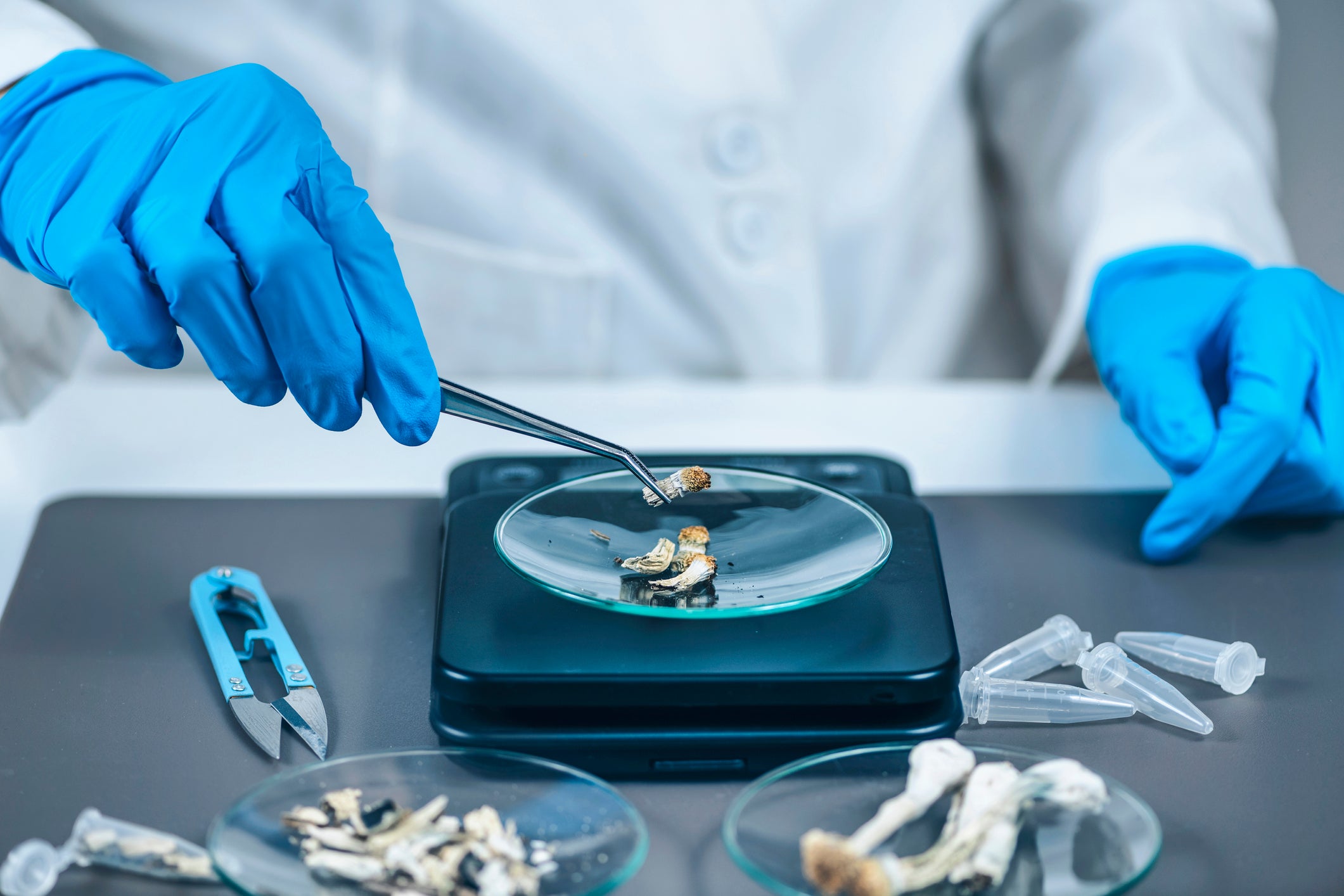The Independent's journalism is supported by our readers. When you purchase through links on our site, we may earn commission.
Psychedelics could help treat depression – we need more research into their potential
The law urgently needs reviewing if people with severe depression are to stand a chance of receiving this potentially life-changing medication


Your support helps us to tell the story
From reproductive rights to climate change to Big Tech, The Independent is on the ground when the story is developing. Whether it's investigating the financials of Elon Musk's pro-Trump PAC or producing our latest documentary, 'The A Word', which shines a light on the American women fighting for reproductive rights, we know how important it is to parse out the facts from the messaging.
At such a critical moment in US history, we need reporters on the ground. Your donation allows us to keep sending journalists to speak to both sides of the story.
The Independent is trusted by Americans across the entire political spectrum. And unlike many other quality news outlets, we choose not to lock Americans out of our reporting and analysis with paywalls. We believe quality journalism should be available to everyone, paid for by those who can afford it.
Your support makes all the difference.Millions of people suffering from depression have benefited from anti-depressant medication. However, a third of people with depression do not respond to anti-depressants and hence have very few effective treatment options and, more importantly, hope that they can recover. Could they benefit from psychedelic treatments instead? New research certainly points that way.
A team from Imperial College, London, carried out a trial with the psychedelic compound psilocybin to see if it could treat people with severe depression. Although not the first trial to do this, it was novel in exploring how psilocybin interacts with parts of the brain.
All of us have experienced persistent negative thinking at some point in our lives, but this is usually short-lived and we find ways to stop this pattern of thinking. People with severe depression are unable to stop persistent negative thoughts, leaving them feeling hopeless and helpless. “If others can do it, why can’t I,” they might think, or that “this is too hard so I might as well not bother”. It becomes a self-fulfilling prophecy.
Talking therapy such as cognitive behaviour therapy can be effective in breaking stubborn thought patterns, but it doesn’t work for everyone. This leaves a group of people with severe depression that don’t gain any benefit from talking therapy or anti-depressant medication.
Although this project had only 60 people, researchers were able to demonstrate the effectiveness of psilocybin in breaking negative thought patterns, in the short term at least. Further research is needed to establish how long-lasting this effect could be and what factors provide a long-term benefit.
The ethnicity of the participants is also unclear. If it is similar to other trials, it is most likely they would be white and British. This really needs addressing as non-white people are at greater risk of developing depression but underrepresented in research trials. We can only hope that psilocybin will prove to be as effective for this group as it is for their white peers.
Nonetheless, this breakthrough will provide hope to many patients and their doctors.
Sadly, it isn’t something that will be available as a treatment option any time soon. Neither is this something people should try themselves, medical supervision is essential.
We have a problem with how psychedelics are regulated in the UK. Researchers face considerable bureaucratic hurdles when seeking permission to use drugs like psilocybin in trials. As a Class A drug, psilocybin is in the same category as heroin and crack cocaine, attracting the most severe penalties and restrictions for supply and use.
The law urgently needs reviewing if people with severe depression are to stand a chance of receiving this potentially life-changing medication when and if it is approved.
To keep up to speed with all the latest opinions and comment, sign up to our free weekly Voices Dispatches newsletter by clicking here
This government has already changed its policy on cannabis after reviewing the evidence on its therapeutic potential, particularly for some forms of childhood epilepsy. But their ultra-cautious approach has meant that only a handful of prescriptions have been issued by the NHS since the policy change in 2018. It would be cruel to replicate the same approach to psilocybin, as it would give false hope to those with severe depression, a group who have depleted hope due to their illness.
Consecutive health ministers have promised to deliver parity between physical and mental health care. So far this remains an ambition rather than a reality for the millions with depression. It is unimaginable to think that if research identified a potential treatment for cancer that ministers would deliberately delay access to it.
Instead, they would make every effort to ensure its journey from research to frontline treatment was as speedy as possible. What happens with psilocybin will be a test of political commitment to the principle of parity of esteem. It should be much more than an empty piece of rhetoric.
Join our commenting forum
Join thought-provoking conversations, follow other Independent readers and see their replies
Comments